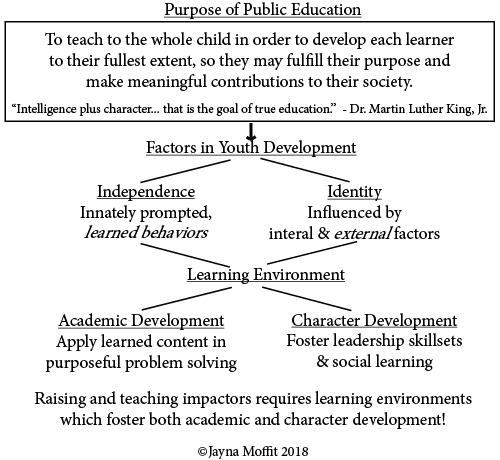Creating Impactors
Book Coming Soon!
Creating Impactors
Developing Our Youth and Public Education
Are we, as a nation, empowering our youth to follow their passions and address society’s issues by making meaningful contributions? Are we… Creating Impactors?
Creating impactors requires learning environments which foster education's purpose and youth's natural development. Independence is not simply separation from care takers, but rather confidently interacting in one's environment. It requires a transfer of responsibility, prompted by learned behaviors. With the innate progression of independence also comes establishing one's identity. Identity is influenced by both internal and external factors. It is the learned behaviors in which one gains independence, and the external factors that contribute to one's identity, in which a care taker (parent and educator) can develop positive influences. These influences occur within learning environments, both inside and outside the walls of classrooms. Learning environments should nourish both academic and character development. Academic may mean a discipline such as math or science, but may also mean a trade such as learning to sew, cook, build, or other activities that allow further independence. Character development refers to the social and leadership skills necessary for being life ready. Together, academic and character development focuses on the development of the whole child. This is the start of developing a learning environment for an impactor. It will require us as care takers to intertwine academic and character development, while allowing students to set their own purposeful goals in which they make meaningful contributions not later, but now and later.
A sneak peak inside of the book!
How do we create impactors?
How do we create impactors?
